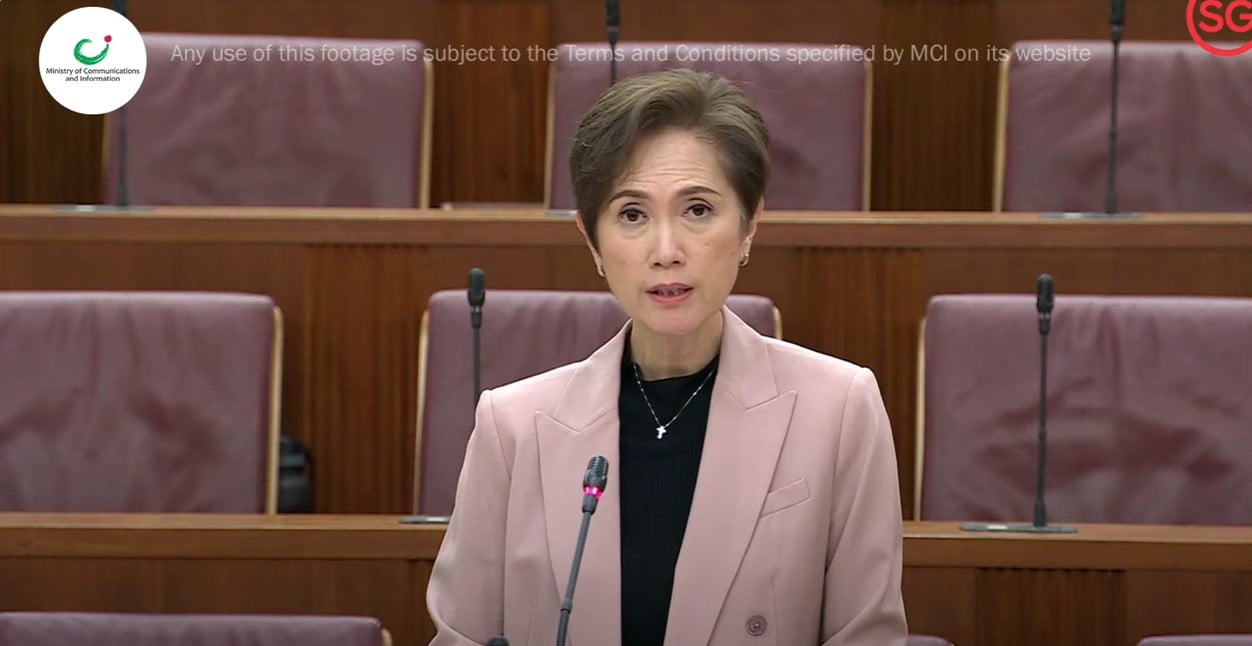SPH Media now appears to be accountable only to MCI, adding to the image that it is the Government’s mouthpiece
If you want to be magnanimous, you can choose to headline the debate on the Government’s funding of the media this way: SPH Media puts funding to “good use’’.
If you’re not feeling charitable, you can write this: SPH Media has “considerable catchup’’ to do, or SPHMedia fails to meet some KPIs.
The quotation marks are used because those are Minister for Communications and Information Josephine Teo’s own words.
Mrs Teo was responding on Friday (March 1) to questions from Leader of the Opposition Pritam Singh about updates to the Government’s funding to SPH Media, which comes under the budget of the Ministry of Communications and Information (MCI).
All three headlines are accurate even if they don’t tell the full story.
But what are journalists to do when her obviously scripted speech needed editing — to plug information gaps and for a logical structure?
SPH Media did not hit the mark, yet received increased budget for FY2024
First, the maths.
The Government had announced in 2022 that it would set aside S$900 million for SPH Media Trust to be disbursed over five years. That averages out to S$180 million a year.
Over the past two years, it gave the media group S$320 million, which is S$40million short of S$360 million.

Source: MCI Singapore on YouTube
Mrs Teo said the full budget was not disbursed because SPH Media did not meet some key performance indicators (KPI).
While most other companies would cut the budget because of failed KPIs, the Government has instead budgeted S$260 million for 2024 alone.
If it sticks to its refrain of providing up to S$900 million to SPH Media over five years, that leaves S$320 million for the last two years.
Which leads us to the next question — what were the KPIs and which were met? Have new KPIs been set befitting the use of S$260 million next year?
SPH Media failed to hit four indicators
From what Mrs Teo said yesterday, she was pleased with two KPIs. She said SPH Media had been strengthening its digital systems with, for example, a new digital content management system and mobiles apps for every title.
She also noted its “extensive efforts” to improve the retention of journalists and quality of its newsrooms through training, scholarships and fellowships with overseas institutions such as the Reuters Institute for the Study of Journalism.
There is no doubt that money has been poured into technology and talent. The question is whether the efforts are reflected in the outcomes, like higher quality content and increased reach.
They haven’t.
As Mrs Teo said, for FY2023, SPH Media failed to meet the targets for youth reach, digital reach and vernacular reach, as well as the average time spent on its websites and apps.
She didn’t say what the targets were or how far off the mark SPH Media was. Rather generously, she said that SPH Media’s efforts were “just the beginning’’.
“SPH Media will need to do more to maintain its relevance in this challenging media environment and will need continued support as it strives to get onto firmer footing,” she had added.
SPH Media now appears accountable to only MCI
What struck me as decidedly odd is how the old publicly listed company that was Singapore Press Holdings was so much more transparent about numbers.
We can rely on shareholders to raise questions at annual general meetings and scrutinise its annual reports and financial statements. We know what it costs to run a newsroom and how much money it makes whether from advertising or circulation.

Now, as SPH Media, it seems accountable to only MCI, which gets updates every six months. And we need MPs to pose questions to MCI about a supposedly independent media.
Recall the hype that surrounded its transformation into the Company Limited by Guarantee (CLG) and how this will free the entity to explore other sources of revenue so that it won’t get gripped by commercial interests that only want to make more money at the expense of public service journalism.
Examples such as The Guardian owned by Scott Trust were thrown up. Go to The Guardian’s website and see how much more information it gives about the newsroom’s operations and the effort it put into engaging the readers. There are financial reports, information about the Scott Trust, corporate policies and more.
Now compare it with SPH Media’s bare bones in its About Us section.
SPH Media is no longer beholden to shareholders who at least can get answers to questions. It is accountable only to MCI, which as I mentioned, responds to MPs.
What about the members of the Trust, you say? They are supposed to take care of corporate governance issues. There are 12 institutional members, a throwback to the old SPH board and comprising banks and big local companies, which also happen to be the major advertisers.
Another four institutes of higher education were added to them. As a CLG, they are supposed to hold an annual meeting by law. But no annual report nor financial statement is required.
More transparency needed
Is it too much to expect that a public-facing CLG, which bills itself as a public trust, would at least give some details of its operations in an annual report?
Perhaps, the argument is that SPH Media does not get public donations or do any fund-raising (I think) and therefore only needs to report via MCI to taxpayers.
If so, I wonder if the expectation is for Government funding to continue forever since advertising and circulation revenue is likely to dip further.
Does SPH Media have plans to wean itself off taxpayers’ money and look at more ways to raise revenue? How much revenue has it raised in conducting classes at its academy, for example?
Instead, it looks like an agency of the Government, which has its funding examined at Committee of Supply debates and other audits out of the public eye.
The principle that the media needs to be subsidised heavily to continue operations is well taken, especially since huge investments in digital infrastructure is needed.
Still, it makes me wonder how a small newsroom such as Mothership can beat the digital reach of mainstream media.
A relationship that could cast doubt on a media group’s independence
Any media chief will know that being too close to the hand that feeds you will lead to compromising situations that cast doubts on integrity and independence.
The way to deal with the perception is to be as transparent as journalists would want their newsmakers to be.
Not utter gobbledygook such as this line as quoted in CNA: “There will be learnings to apply and room for improvement along this journey as we continue to adapt to the evolving media landscape. We believe that our commitment to our transformation roadmap will help deliver outcomes aligned with our mission and objectives.”
Mrs Teo and SPH Media take great pleasure in citing “trust’’ indicators that put the media in a favourable light, such as the 2023 report from Reuters Institute.
Source: Reuters Institute
While the trust indicator for The Straits Times (ST) is high at 73%, its online reach is slowly waning and being taken over by other digital sites. The same report shows that its weekly online reach stands at 42%, ranking below Mothership and CNA.
Source: Reuters Institute
I read mainstream media because I have to, as they are the main ways to get information about Singapore. I trust that the information is accurate, in so far as the newsmakers have presented it. That is, at face value.
Increasingly, however, I cannot depend on the media to go beyond what has been presented to them, to get into the whys and wherefores or even the significance of the information presented.
Professionally speaking, I see too many shortcomings that will sooner rather than later affect trust indicators. I have listed them under #berthablowsup.
I am already detecting a slight shift in emphasis. There is now less talk about “quality journalism’’ but more about “public service journalism’’.
I hope that this is not defined in such narrow terms that it becomes acceptable for the media to cut-and-paste official statements in the name of public service.
In a Linkedin post yesterday (1 March), SPH Media CEO Teo Lay Lim dwelt on the technological transformation in the company.

Source: Teo Lay Lim on Linkedin
She said: “We now transition these Wave 1 initiatives to ‘Operate’ mode, as they become business-as-usual. There is no going back; rather, to continue forward, to learn and master, scale and grow, continuously improve and fine-tune, on the back of these foundations… and enable future waves of the journey.’’
I hope this wave includes stemming the ebb of quality journalism.
Also read: SPH Media has received S$320M in Govt funding & did not meet KPIs: Josephine Teo
SPH Media has received S$320M in Govt funding & did not meet KPIs: Josephine Teo
Bertha Henson is a long-time media practitioner and trainer who comments on local news. She blogs at Bertha Harian.
Have news you must share? Get in touch with us via email at news@mustsharenews.com.
Featured image adapted from Reuters.

Drop us your email so you won't miss the latest news.









